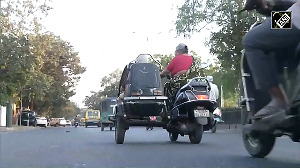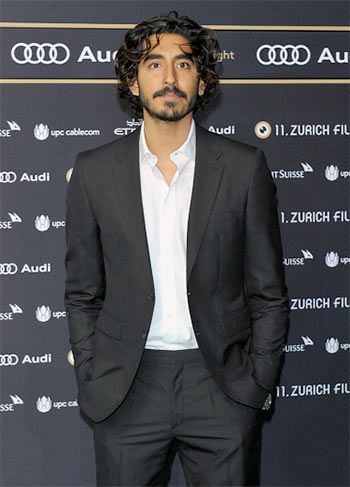 'When I first came to Toronto, I came in my school shoes and had a blazer. I remember I was with Freida and someone said you can't put this guy next to her. He looks terrible.'
'When I first came to Toronto, I came in my school shoes and had a blazer. I remember I was with Freida and someone said you can't put this guy next to her. He looks terrible.'
How things have changed for Dev Patel!
Dev Patel was a young television actor when he was picked to play the lead in Danny Boyle's multiple Oscar winning film, Slumdog Millionaire.
While its success was like a dream for its stars, including Freida Pinto, who got major Hollywood offers, Patel struggled for sometime, until he found projects that helped him grow as an actor.
His biggest break was in the two-part British comedy, The Best Exotic Marigold Hotel where he got to act with England's acting royalty -- Maggie Smith, Judy Dench, Tom Wilkinson, Bill Nighy and Penelope Wilton.
Since then, he's been rather busy as an actor.
In a few months, he will be seen in the Australian production, Lion, where he plays Nicole Kidman's adopted son.
Before that, he played a major Indian role, that of the mathematician S Ramanujan, in The Man Who Knew Infinity.
The Man Who Knew Infinity played at a number of film festivals and opens the Indian International Film Festival in Goa.
Aseem Chhabra spoke to Dev Patel at the Toronto Film Festival, and chatted about his movies, and working with Jeremy Irons, Nicole Kidman and Maggie Smith.
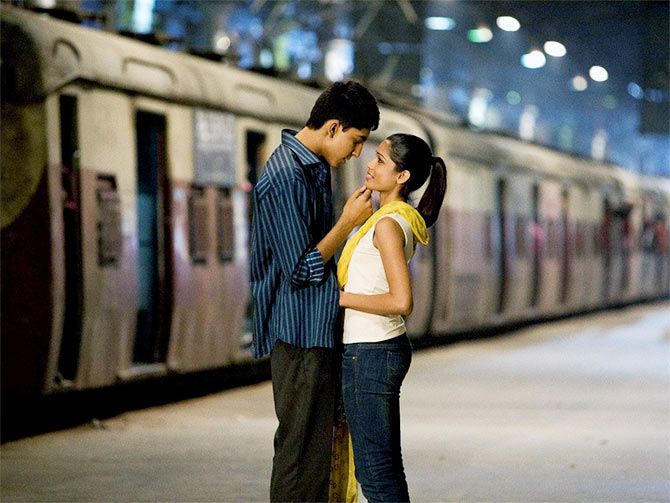
I read somewhere that the first time you went to India was during the making of Slumdog Millionaire,
Actually, I went kind of unconsciously when I was a kid. I got dragged along to a family wedding when I was not even six. I didn't enjoy it. I remember missing my Game Boy and being welcomed by mosquitoes, which wasn't fun.
I went for Slumdog and reconnected with the culture and saw Bombay for the first time. It was pretty amazing.
How has it affected your life since?
It's like finding a part of yourself, when you get connected to a big part of your heritage. It's a fascinating canvas to film on anyway since it is full of humanity.
Bombay, in particular, is a very extreme city. It is full of contrasts -- the rich and the poor and the colours. For an actor, it is like a dream.
I interviewed you when you were 17 or probably just turning 18. Eight years later, how has your life changed? I can see you have matured. You used to use the word 'wicked' a lot.
Wicked! Did I say that a lot? That's what you get when you drop out of school early. You have a limited vocabulary and it starts and ends with 'wicked'.
But how to not sound cliched?
You can sound cliched.
Chris Rock says 'When you are doing a job, you are constantly looking at the clock. Where as in career, you can't get enough.'
And that's what it is.
I have had this tremendous opportunity to do something I am passionate about. I go to work and play. I am most confident when I am on a film set. I feel great. I am so lucky that I am getting paid to do that and to bring stories like this forward.
(Director) Matt (Brown) had this story for over 10 years before it came into my lap and I had the opportunity to green light a project like this, so I am really proud of the film.
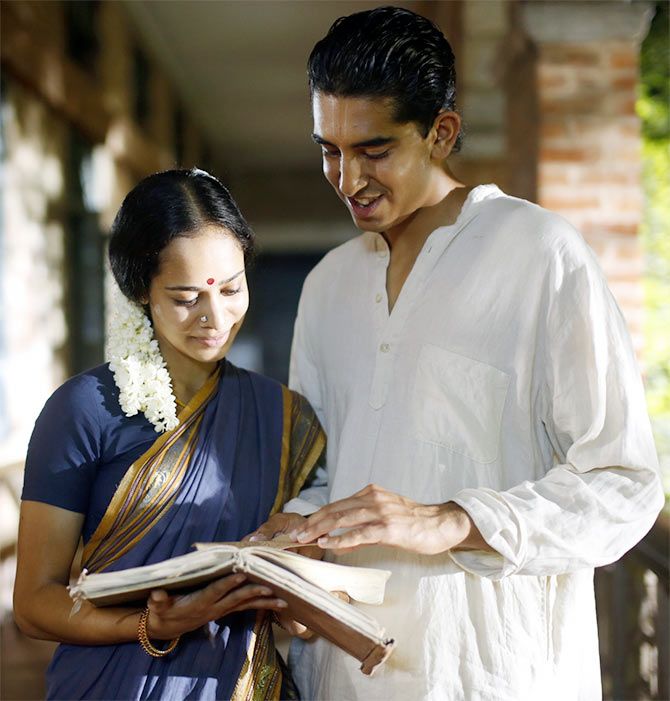
You play a mathematician and a genius in The Man Who Knew Infinity. Are you passionate about numbers?
No. I can barely figure out tips on a bill.
My dad is an accountant. I always let him down since I was horrendous in mathematics. So to play one of the greatest mathematicians was quite the irony.
Were you worried that a subject matter like this would not work for you because of the mathematics involved in it?
Yes, when the script came to me, I worked with Matt for a year. I did tell him that I don't know anything about math and maybe I am not your guy.
But I do connect with the human relationship in the story. It is almost like a dysfunctional father-son relationship. You have a guy who has come from the middle of nowhere in the south of India, fresh-of-the-boat into Cambridge in a very snooty environment, facing racism, prejudice...
He's an abstract mathematician, so he believes his theories have come from god. And to think someone had created such complex theories from nowhere -- he had no formal education -- is just mind-boggling.
But more than anything, it is about these two humans (S Ramanujan and his professor G H Hardy, played by Jeremy Irons). The only thing they have in common is maths. To see them together and create something is really beautiful.
Hardy puts his whole reputation on the line for this Indian man. But at the same time he almost failed to see him as human. So that was a beautiful contrast that we pushed and worked on.
My cheesy line is that it is like a mathematical bromance. That's what the film is.
So how did you transform into Ramanujan?
It's interesting because there is no real footage of him, so there is no aspect of mimickery.
There are pictures that say a thousand words, but I look very different from him. He was short, stout, very dark. And he was reclusive. But the energy came alive with mathematics. Otherwise, he didn't know what to do with others.
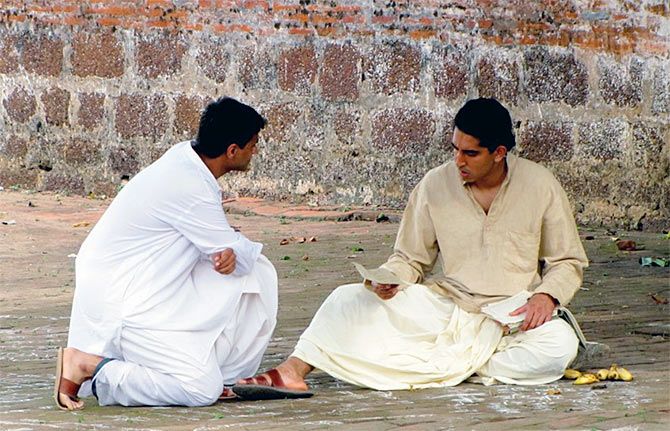
This is your fourth film in India, right?
Yes, I did a few segments of Lion in India.
What does it take to become an Indian, between the accent and the mannerisms? As an actor, what do you bring in?
It changes each time.
With Marigold, it was a heightened version of an Indian. I took reference from Faulty Towers. It was a comedic creation. The language and rhythm was of Sonny.
Some people would say that was not an Indian accent. I said it was Sonny's accent. He needed to be different from the older actors and that's why his pace was such in the film.
With this film, my best friend Raghu, who I met on Marigold, came on board to be my accent coach. He's from Bombay, and he was with me throughout. We stayed together. He was cracking the whip every day, trying to get me to sound subtle and obviously not like I sound now.
What about the body language?
It's a restrained performance. He comes alive on the floor or when he is in front of a chalkboard. The rest is a more internalised performance. There is one scene when he lets go with Hardy a bit, where they have an argument.
If you look at Ramanujan's journey to England, how do you relate with it?
I am very lucky. I know what my parents had to face when they first came to London. And it's completely different from the London I live in, which is a multi-cultural boiling pot of people. It's the city that allowed me to flourish and get my first job.
There are certain scenes where Ramanujan is being called a wog. I remember doing those scenes and it started to hurt a little. I didn't feel comfortable, and I didn't expect that. I never experienced that myself.
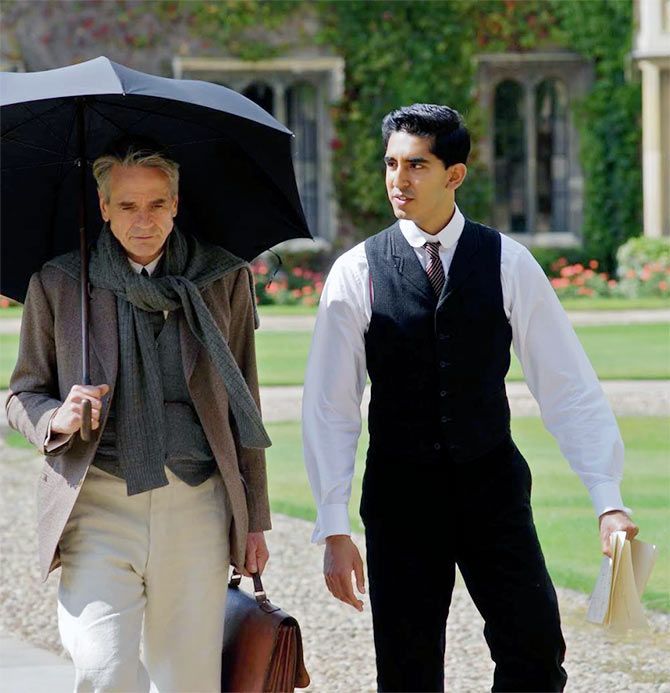
What do you think you have in common with the Ramanujan character?
I like the essence, the struggle of the man. I have always felt like an outsider. I was never popular in school. So when I read scripts like this one, I relate to the outsider quality. But apart from that, he was a genius and I am not.
Why weren't you popular?
I don't know. I was an awkward-looking fellow. Not that I am not now.
Do you connect with your school friends now? Do they realise how famous you are now?
No. I have only one or two old friends. Your best friends you can count on one hand.
So what was it like working with Jeremy?
He's incredible. He's like a rock star. He loves wearing Indian kaftans and he would come to the set in jump suits.
He really dictates the scene. The planets revolve around his gravitational pull. I was in awe of him, and that worked for the student-mentor relationship.
What do you learn from these senior actors? In Marigold Hotel, there are so many iconic actors.
Jeremy is so finely tuned to the set. I was stressing about my performance and dialogue delivery... how am I going to cough convincingly and sound like I have tuberculosis... and he comes in, sits there, smoking a cigarette. It was winter so he was wrapped in a coat. He's got such an attention to details that was really fascinating for me.
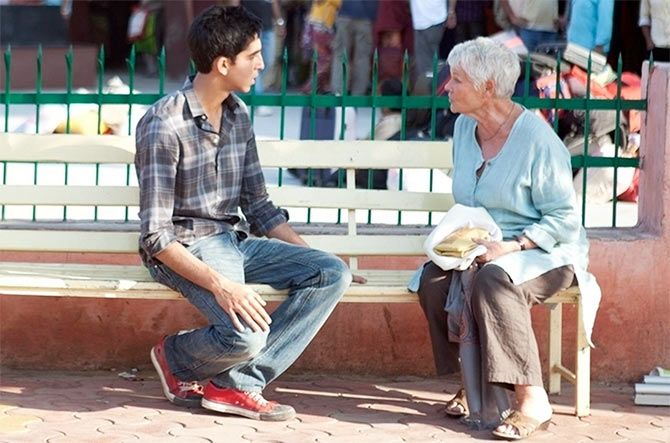
What about Judy Dench, Maggie Smith and Nicole Kidman?
The great thing about those guys is their sense of humour. They are so funny; one laughs all the time.
In Marigold 2, I was driving with Maggie in a Mustang with the roof pulled down, in Spain. We spent three days together while I was driving, and she was scared for her life since I had just passed my driving test.
She is great and so patient.
But you can see her getting upset with the photographer. When she's not happy, you know it. But with me, she had this patience that I was very grateful for.
You play Nicole Kidman's adopted son in Lion.
I am really excited about that. Lion is probably the best script I read, so to be a part of it is astounding.
Nicole is so raw in the film. All the glamour that she had as a human being is stripped away and she is so vulnerable.
Rooney Mara plays my girlfriend.
You hang on to the coat-tail of these great actors and hopefully, they will raise your game as Jeremy did.
It is a triumphant movie and that's why I relate to it. As someone who has to go into the deep end and face adversity and triumph. It's like in Marigold where the guy has a crappy hotel.
And you have an Australian accent in< em>Lion?
Oh yes. You feel so creatively nourished. The director not only physically changed the way I look like, but really forced me to go down the journey that was a different embodiment. The way I sounded. I was in the gym all the time since I had to get a bit bigger.
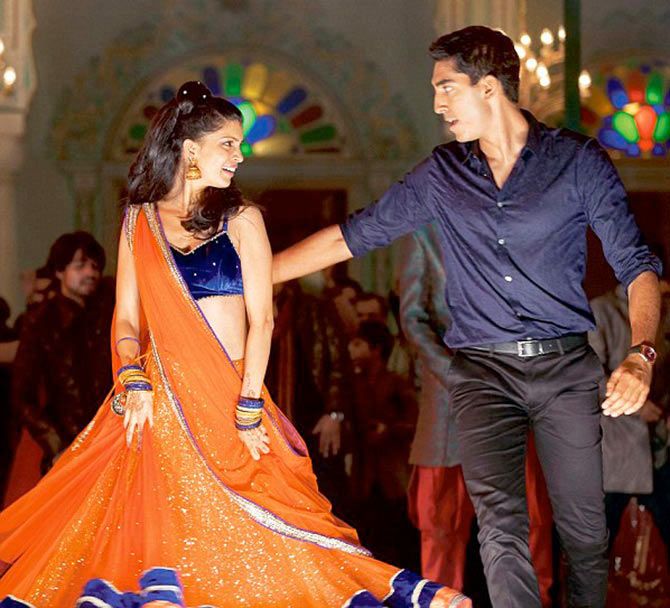
A few years ago, after Slumdog you said you were being typecast as an actor -- that you were only being offered roles of a terrorist or a cab driver. Do you still feel so or is it changing?
The scripts I am usually offered are quite typecast, but things are changing now since I have been around a bit longer. I am starting to look at it more of blessing than a curse, especially when I get to play a great Indian and tell his story.
In Chappie, I played a character called Deon Wilson -- that's not an Indian name. So things are changing.
I don't think I am typecast like I first came on the scene.
But all your roles haven't been of Indian characters.
I acted in a small film that no one saw called The Road Within where I played a character called Alex who had OCD.
Like I said, I don't see it as a problem now. I see it as opportunity.
I can access two parts of myself. I have got a British accent and was raised in the West, so I can play those roles. And I can also play Ramanujan. You can say I have a changed perspective now.
I wanted to go back to Slumdog again. Once the film had such a massive reception did you at some point say, 'Wow my life is changing?'
When I first came to Toronto, I came in my school shoes and had a blazer. I remember I was with Freida and someone said you can't put this guy next to her. He looks so terrible. And she was in a dress bought by her stylist.
I think I got a free penguin suit that didn't quite fit and they gave me shoes where I had to curl my toes on the red carpet.
It was a very weird experience for me.
I remember stepping out of the car, and all the press was rushing. I looked like such a goof ball that they didn't realise I was the lead in the movie. They were yelling 'Freida' and I was essentially holding the car door until it started to move forward. And the car stopped when they realised I wasn't in. It was a weird experience.
Did you ever imagine that at 25 you would achieve so much?
Well, it's work, isn't it? It's hard to really elevate yourself. I am having fun and am so lucky.
My mom cares for the elderly and she works a lot harder than I do. When I think of what she does, it puts everything in perspective.
TOP PHOTOGRAPH: Lennart Preiss/Getty Images










